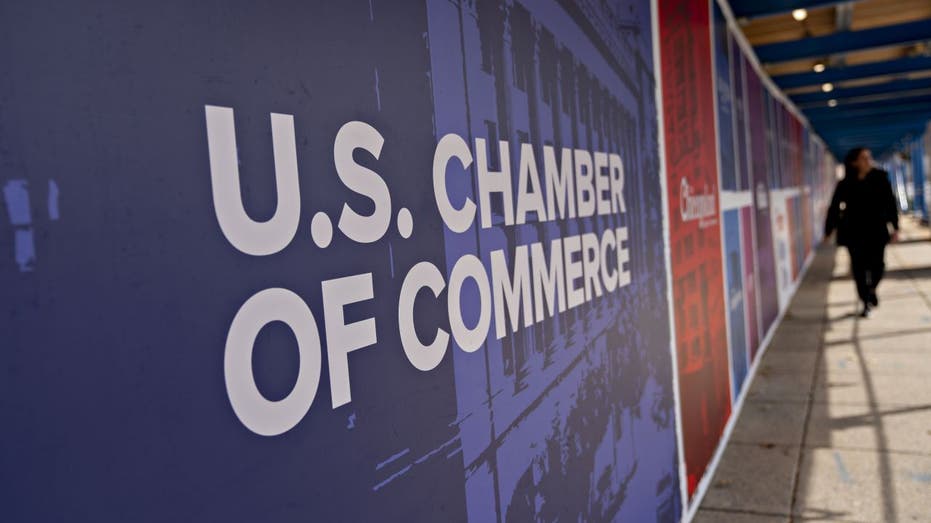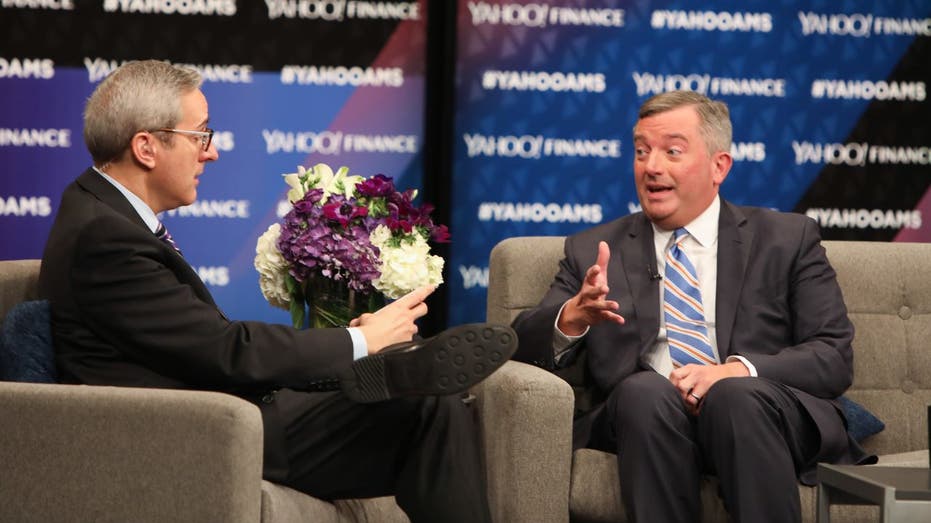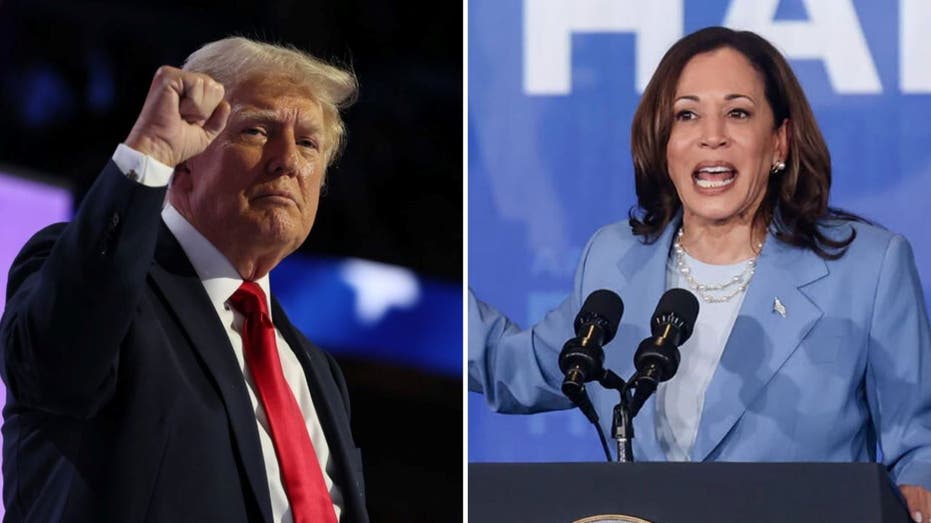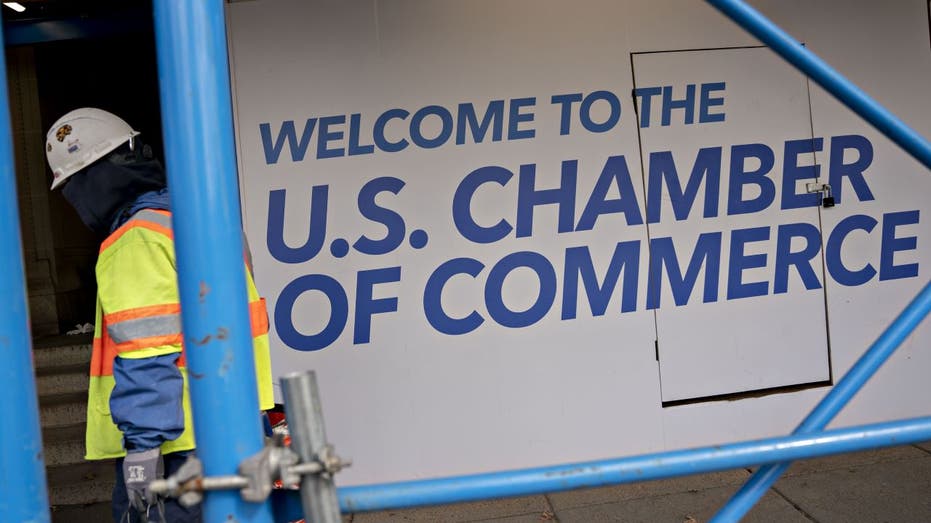Chamber of Commerce releases tax policy priorities ahead of election
The Chamber of Commerce noted that the costs of corporate income taxes are ultimately borne by consumers, workers and shareholders
Neil Bradley - Executive Vice President, Chief Policy Officer, Chamber of Commerce
Neil Bradley of the Chamber of Commerce discusses the importance of tax policy in the business community
Election Day is fast approaching and as Republicans and Democrats spar on the campaign trail, America's largest business trade group is urging policymakers to pursue tax policies that boost the U.S. economy as a significant debate in Congress over taxes and spending looms next year.
The U.S. Chamber of Commerce released a report this week about the importance of pro-growth tax policy and how it boosts workers' wages and strengthens the economy at large. That policy memo called for the new Congress and administration to preserve current business tax rates, ensure the competitiveness of the business tax base, and keep the U.S. international tax system competitive with those of economic rivals around the world.
It comes as Congress is set to confront the expiration of key components of the 2017 tax reform legislation, known as the Tax Cuts and Jobs Act, late next year. That will be prefaced by policymakers debating an increase in the national debt limit, which is suspended until early next year, and the expiration of discretionary spending caps.
Neil Bradley, executive vice president, chief policy officer and head of strategic advocacy at the U.S. Chamber of Commerce, told FOX Business in an interview, "The thing that we're really hoping that policymakers will focus on is this question of how much growth each tax policy will generate."
US EXECUTIVES 2024 ELECTION TALK RISES AMID POLICY UNCERTAINTY

The U.S. Chamber of Commerce called for policymakers to pursue tax policies that support America's economic competitiveness. (Andrew Harrer/Bloomberg via Getty Images / Getty Images)
"Not all tax increases, and not all tax cuts, are created equal. Some of them hurt the economy, or help the economy, more than others," Bradley said. "What's really important is they select policies based on what's most likely to produce economic growth and higher wages."
Among the policies the trade group called for are preserving the current 21% corporate income tax rate and ensuring businesses can deduct expenses related to research and development (R&D) and capital projects, as well as keeping the tax code competitive for American companies operating abroad and foreign companies investing in the U.S.
HARRIS CALLS FOR RAISING CORPORATE TAX RATES TO 28%

Neil Bradley, chief policy officer at the U.S. Chamber of Commerce, right, said that faster economic growth helps people achieve the American Dream. (Tasos Katopodis/Getty Images for Yahoo Finance / Getty Images)
The corporate income tax rate is one area of stark contrast between the two leading presidential candidates, Vice President Kamala Harris and former President Trump.
Trump signed the 2017 law that lowered the U.S. corporate tax rate from 35%, the highest in the industrialized world, to 21% on a permanent basis. Harris has signed on to President Biden's push to raise the corporate tax rate to 28%, though during her short-lived presidential primary campaign in the 2020 election cycle she wanted to return the corporate tax rate to 35%.

The presidential election features a stark policy contrast between former President Trump and Vice President Kamala Harris. (Getty Images / Getty Images)
The Chamber of Commerce's report cited research by a group of economists that analyzed who ultimately pays corporate taxes and found that consumers shoulder the brunt of the cost with 52% of corporate taxes passed on through higher prices, while workers face 28% of the burden through lower wages and corporate shareholders carry 20% of the hit through lower returns on investment.
"This isn't a faceless entity that's actually paying that tax. If you raise the corporate tax rate, all of us pay for it in the form of higher prices, lower wages and less money in retirement accounts," Bradley explained.
HARRIS' ECONOMIC PLAN WOULD ADD OVER $1.7T TO NATIONAL DEBT: CRFB

The U.S. Chamber of Commerce's report said pro-growth tax policies can help achieve annual economic growth over 3% or more. (Andrew Harrer/Bloomberg via Getty Images / Getty Images)
The Chamber's policy memo calls for setting a goal of achieving at least 3% annual economic growth, which it believes can be attained in part through pro-growth policies it's advocating. Bradley explained that if the U.S. economy grows at 3%, it would allow the share of the economic pie for each American to double in roughly 22 to 23 years — whereas at a 2% GDP growth rate it takes 35 years.
"This really is kind of core to the American Dream, the idea that our kids and grandkids will have a better life than what we have today is predicated on the idea that the whole pie is getting bigger, faster, and that each of our slices is getting bigger, faster," he explained.
"It also translates to prices — when you think about what faster economic growth means, it means that we're producing things more efficiently, which means lower costs for consumers."
GET FOX BUSINESS ON THE GO BY CLICKING HERE
"At the end of the day, the American people aren't looking for handouts from the government. What they're looking for is an economic system that allows them to find and keep a job and to grow their wages, and that's what we get when we have a tax code focused on growth," Bradley said.




















